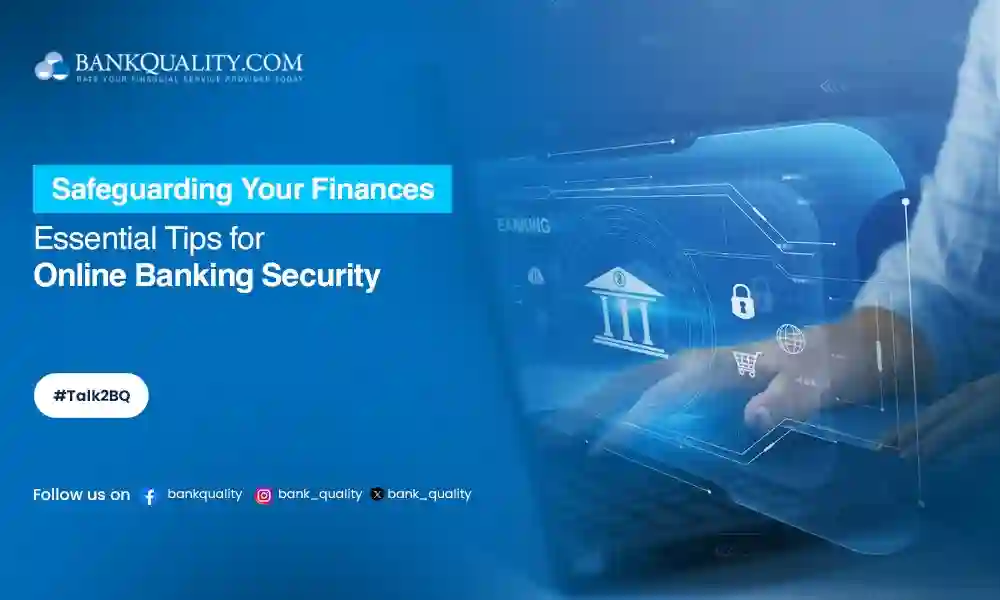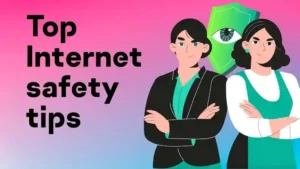Tips for Safeguarding Your Online Banking Information

Let’s face it, online banking is one of those conveniences that we can’t live without. But, boy, is it a double-edged sword. You’re in bed, checking your balance at 11 p.m. on a Tuesday, and then BAM! A hacker somewhere is eyeing your personal info like a cat stalking its prey. And you’re just there, mindlessly scrolling. I’ve been there, too. Here’s the kicker: if you’re not careful, that cozy little online banking habit could end up costing you big time. So, let’s dive into some real-world tips for safeguarding your online banking info, shall we?
1. Create Strong, Unique Passwords (And Don’t Reuse Them)
Here’s a lesson I learned the hard way: the password “password123” doesn’t cut it. Nope, not even close. Look, I know we all want to be quick and easy with our login credentials, but a little creativity can go a long way. Remember when I tried to use my dog’s name and the year I graduated high school? (I’m cringing too.) Yeah, hackers probably saw that coming.
Why Passwords Matter
A strong password is like a fortress around your bank account. Not the kind of fortress where the walls are made of marshmallows, though. Think more like a steel-plated vault.
- Make sure to mix in lowercase, uppercase, numbers, and special characters.
- Don’t use info that someone could find in five seconds on Facebook.
- And PLEASE change your passwords now and then. I know it’s annoying, but trust me—it’s worth it.
Pro Tip: Use a Password Manager
A password manager is basically a security blanket for your passwords. It remembers all your super-complex passwords and locks them up in one encrypted vault. No more writing your password on a sticky note (I see you, my friend).
2. Enable Two-Factor Authentication (2FA)—Yes, Even if It’s Annoying
I used to roll my eyes at two-factor authentication. “Ugh, so I need to check my phone every time I log in? Seriously?” But here’s the thing—having 2FA on is like installing a second lock on your door. Sure, it’s an extra step, but it could keep out the person who’s already in your system trying to raid your savings.
How 2FA Works
After you type in your password, you’ll get a prompt asking for a second verification step. This could be a text with a code, a code sent to your email, or even an app like Google Authenticator. It’s annoying at first, but seriously, would you rather deal with fraud?
3. Keep an Eye on Your Bank Statements—Seriously
Oh, man. I can’t tell you how many times I’ve looked at my statement and thought, “Who the heck spent $100 at Best Buy?!” (Spoiler: it was me, but I’d forgotten about that late-night impulse buy.) Regularly checking your bank account can help you catch those small, sneaky transactions before they become a huge problem.
Why You Should Monitor Regularly
- Set up account alerts, so you get a notification every time something moves around.
- Review those statements quickly after big purchases—remember, hackers love to sneak in right after big sales or Black Friday.
- Found a weird transaction? Don’t wait—call your bank ASAP.
4. Avoid Public Wi-Fi Like the Plague (Trust Me, I’ve Been There)
Look, I’ve tried banking while on a café Wi-Fi. It was a bad idea. I felt like I was walking through a digital minefield. Public Wi-Fi is like leaving your front door wide open in a sketchy neighborhood—you’re just asking for trouble.
Wi-Fi 101
- Always, and I mean always, use your personal Wi-Fi if you’re doing anything with banking.
- If you have to use public Wi-Fi, fire up a VPN (Virtual Private Network). It’s like putting your data in a super-secret underground bunker.
- Oh, and if you’re wondering, yes, I did panic about whether someone was hacking me at a Starbucks once. Spoiler: It wasn’t a hacker. It was just my paranoia.
5. Keep Your Devices and Apps Up to Date
If you’re anything like me, you’ve ignored the “update available” notification more times than you can count. But here’s the deal—skipping updates is a hacker’s dream. These updates patch vulnerabilities that cybercriminals are just waiting to exploit.
Why Updates Are Your Best Friend
- New updates come with security patches that fix bugs and vulnerabilities.
- Always update your operating system, browser, and any banking apps you use.
- Pro tip: Set those updates to happen automatically, so you don’t even have to think about it. That’s what I did (after months of procrastination).
6. Watch Out for Phishing Scams (They’re Getting Craftier)
I’ve gotten a ton of scam emails that looked way too legit to be fake. They all say the same thing: “Click this link to verify your account.” And of course, I almost clicked that link once… and then I remembered: “Oh, yeah, I don’t bank with that institution.”
How to Spot a Scam
- Double-check the sender’s email. It’s not going to be from “support@bigbank.com” if you don’t bank there.
- Be wary of “urgent” requests. I mean, how urgent is it really that you transfer $500 now?
- When in doubt, don’t click. Just go to the official website or call your bank directly.
7. Use Virtual or Disposable Cards for Online Shopping
Okay, I admit it: I’ve made some pretty embarrassing online purchases. But I also use a disposable credit card now to avoid having my real card info stolen. It’s like having a decoy wallet.
Why Virtual Cards Rock
- They are temporary, so they limit how much damage a hacker can do.
- You can set spending limits, so they’re perfect for online purchases.
- My virtual card has saved me more than once when I accidentally bought something from a sketchy website. Oops.
8. Set Up Strong Security Questions
I used to think security questions were a joke. Then, I set one up that was embarrassingly easy to guess. You know, like “What was your first pet’s name?” Let’s just say my childhood hamster was a little too popular among my friends.
What to Do Instead
- Choose questions that aren’t easy to Google or guess. My question is something weird—and if anyone knows it, I’ll be a little concerned.
- Don’t pick anything obvious, like “What’s your mother’s maiden name?”
- Also, just to be clear: No, you can’t pick “What’s my favorite pizza topping?” and expect it to be safe. (I mean, I did, but I fixed it, okay?)
9. Be Extra Cautious with Email and SMS Links
A couple of years ago, I clicked on a link from what looked like my bank. Turns out, I’d clicked on a phishing link. I was this close to handing over my banking credentials. Yeah, rookie mistake.
What to Do Instead
- Always hover over links to see where they go before you click.
- Don’t click on links from random emails or texts. If you have to ask “Is this legit?” it’s probably not.
- If you feel even a tiny bit uncertain, open up a new browser tab and log into your bank manually.
10. Log Out After Your Online Banking Sessions
I once left my banking app open on my phone while I went to get coffee. Big mistake. I thought, “Who would steal from me right here in this café?” Let’s just say someone could’ve taken a lot of money if they were paying attention.
Why Logging Out is Essential
- Logging out makes it that much harder for someone to sneak in and steal your data.
- Especially important if you’re using shared devices or computers.
- I’ve even made it a habit to set a lock screen on my phone for extra safety.
11. Protect Your Personal Information
As much as I love telling people about my life, I’ve learned to hold back on sharing too much personal info. Yeah, I love talking about my favorite TV shows, but I don’t need to tell strangers where I live or what my dog’s name is. (RIP, Gary, my first failed herb garden.)
Keep Your Personal Info Under Wraps
- Shred documents with personal info. No, seriously. You can’t just throw them in the trash.
- Stop oversharing on social media. Yeah, I know, your brunch photos are awesome, but maybe keep your address off there.
- And remember, the more you talk about yourself, the easier it is for scammers to figure out your answers to security questions.
Fast forward through the usual struggles of online security—now, you know how to keep your online banking safe. So go ahead, keep banking in your pajamas, but just make sure you’re not letting hackers in for a midnight snack.







